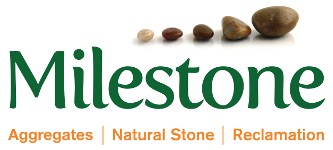Last blog articles
Blog archives
Search on blog
How to care for your natural stone paving
If you have just invested in some beautiful new stone paving, then it goes without saying that you’ll want to keep it looking great for as long as possible. With some regular maintenance and quick action in the event of a stain or spillage, there’s no reason why your natural stone paving won’t remain at its best for years to come.
Here’s all you need to know about caring for your natural stone pavers!
Year-round maintenance is a must
It’s important to spend time looking after your patio or driveway throughout the year to keep your paving looking its best. In the spring, give your paving a thorough clean, just like you would the rest of your home. As you entertain guests throughout the summer, keep an eye out for any wear and spillages and aim to fix any imperfections sooner rather than later. Keep your paving free of falling leaves and fruit during the autumn to prevent staining, too. In the winter, you may choose to use brown rock salt or white de-icing salt on your natural stone flooring to keep it hazard-free; don’t be concerned by the temporary discolouration that darker salts can cause, as it will pass.
You need to act quickly to get rid of stains
No matter how much effort you put into keeping your paving looking great, accidents do happen. If you’re prepared, though, you should be able to tackle a multitude of stains and blemishes with ease. Food and drink should be cleaned away with warm soapy water, while lemon juice can work wonders on rust stains left by furniture. When removing any stain, be sure to test a small, discreet area of paving first before applying the clean-up technique to the whole space!
Weeds
Weeding can often feel like a losing battle. No type of paving is weed-proof, so you’ll have to get your gardening gloves out no matter how much money you have invested in your landscape. As time goes on, the jointing between your paving stones will wear – which means more weeds will be able to make their way through. If this happens to your paving area in the future, re-jointing the paving stones will help to keep weeds in check.
Pressure washing
A pressure washer is something that many of us have laying around in our sheds; if you haven’t got one then be sure to snap one up in the winter sales. Many gardeners like to incorporate a pressure wash into their big spring garden clean, and this will make it look bright and fresh. However, don’t be afraid to use it throughout the year on stains that are hard to shift, such as oil spills and ground-in mud and dirt.
Acid washing
Acid washing is something that gardeners are divided on. There’s no doubt that this technique often achieves stronger results than typical household cleaning products, and often succeeds when all other methods of stain removal have failed. However, due to its potency, it does have the potential to damage some types of natural stone paving. If you are in doubt, talk to your paving supplier before you go ahead. Always do a small patch test the day before, too.
Start now, and your paving will thank you in the long term!
In a nutshell, regardless of whether you’ve opted for timeless sandstone paving or have chosen statement Yorkstone paving slabs, maintaining your investment is all about preventative measures.
Our advice? Be sure to seek ideas and recommendations from the experts if you are ever unsure about using a particular product or cleaning method on your patio. One simple cleaning mistake could be expensive to rectify further down the line.

 How to measure up for your landscaping supplies
How to measure up for your landscaping supplies
 Things to do in your garden before the spring kicks in
Things to do in your garden before the spring kicks in
 5 lesser-known facts about rock salt
5 lesser-known facts about rock salt
 How snow and ice can damage your property
How snow and ice can damage your property
 Flat pebbles for a heart-warming lockdown keyworkers initiative
Flat pebbles for a heart-warming lockdown keyworkers initiative